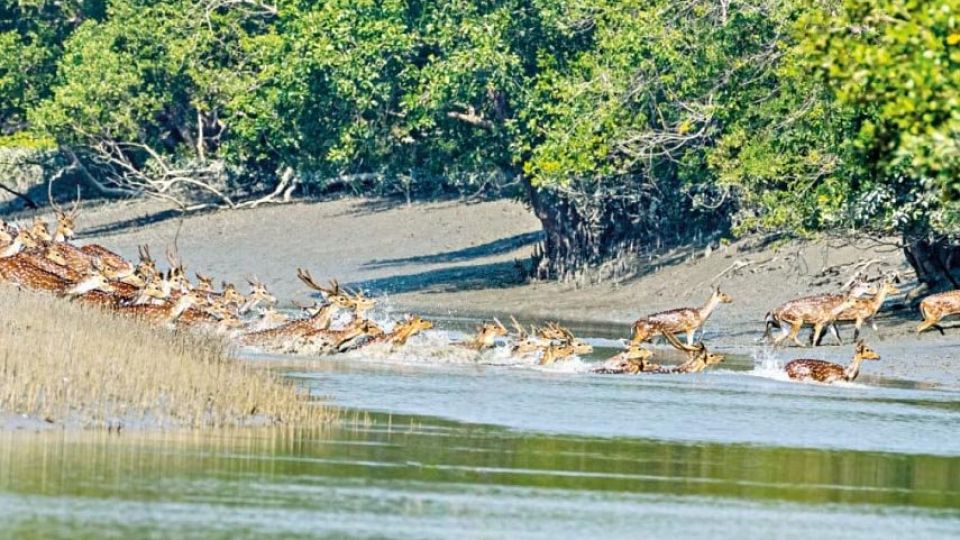April 14, 2023
DHAKA – The recent foreign exchange reserve crisis in Bangladesh has the best of experts worried. Besides maintaining the financial stability of the country, forex reserves also ensure that the country has enough moolah to import food in case of a sudden crisis – including climate-related ones, to which Bangladesh is quite prone – and buy emergency medical supplies or arrange for fuel, as seen in recent times. But what does a country do to fight an unpredictable climate crisis? What other ways does it have to become a more adaptive nation?
As the current climate situation threatens the existing financial protocols and the ways in which the economy works, the world is finding new ways to address these issues. To some environmental experts, the answer is simple. The Covid pandemic has delivered a harsh lesson across the world. Nature wants to be treated right and climate change impacts will become even harsher if positive changes are not incorporated in the current practices. This includes replenishing more than just monetary reserves; it means replenishing natural water and forest reserves, restoring forests and wetlands, and reversing air pollution. Savings need not, or rather, should not, solely be financial.
Think of it as something akin to the happiness indicator. A number of unconventional criteria help measure how happy a nation and its citizens are. For a disaster-prone country like Bangladesh, a security indicator might work, where the ecological reserves (such as land, forests, water bodies, and biodiversity) and how well they have been preserved can be used to measure how independent and secure a nation is in the advent of a climate-change-induced natural calamity.
Historically, when people did not have the financial ability to buy food, they would often dig up potatoes from their yard or fish from their ponds to manage the day’s nutrition. They also had the option to sell these wares, or even part of their livestock, simply to survive the difficult days. If this culture can be revived, fewer people would face economic hardships and would have another, easier means of survival. This solution does not need to remain restricted to individual homes; entire communities could work together to ensure their own nutrition through similar processes.
Urban citizens, too, can do much to preserve natural resources. Those who can avail the space on their rooftops to build gardens should take up the responsibility of doing so. This not only ensures their food security to an extent, but also ensures organic nutrition. Similarly, urban homes have solar panels that have been made mandatory by the government. Unfortunately, the use of such solar panels is yet to become widespread. Using these panels can help people become energy-efficient, promote renewable energy, and help the environment in the process.
As the current climate situation threatens the existing financial protocols and the ways in which the economy works, the world is finding new ways to address these issues. To some environmental experts, the answer is simple.
Millions of litres of water are wasted every day in Bangladesh. If every farmer, be it rural or urban, becomes a little more conscious about wasting water, it is possible to revert the wastage and save water for irrigation purposes.
Recycling glass, plastic, paper, and fabric can save additional dollars, and promoting the production and use of such products can help the country in the long run in the face of fewer clogged landfills and harmful gas releases. Using products that can be reused over time, such as steel straws instead of plastic straws, jute or cloth bags instead of polythene bags, can make a big difference.
In countries like Bangladesh, where adaptation requirements are foremost on people’s minds, much has been done to help the common people until meaningful mitigation takes place. Some of these adaptation measures have, over time, turned into maladaptation practices, such as shrimp cultivation. Natural salinity of agricultural land saw shrimp cultivation as a way to adapt, whereby farmers could use gher (fish farm) culture to grow certain crops as well as cultivate shrimp in saline soils. However, it soon became evident that the shrimp export sector was a good way to make money in export markets, and thus, malpractices such as manually increasing salinisation in certain soils increased. While this made land conducive to cultivating shrimp, it also made it less fertile to grow any other crops on.
As millions of dollars have already been invested into such practices, new programmes must be incorporated for green transition. And funds must be allocated in national budgets to facilitate this transition as well as to pay for the investors’ interests and encourage them for more green investments.
Kazi Amdadul Hoque is a climate, development, and humanitarian activist. His Twitter handle is @KaziAmdadbd


